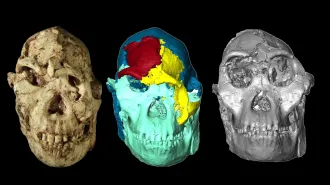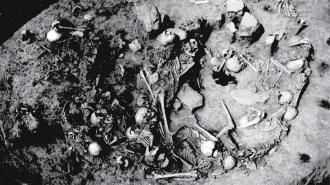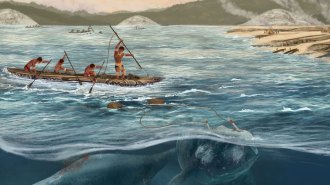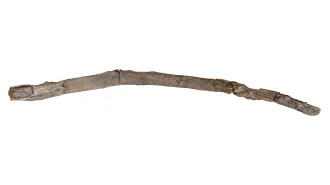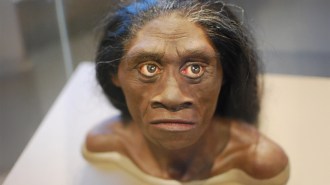A partial skeleton reveals the world’s oldest known shark attack
A man encountered the animal 3,000 years ago off the coast of Japan
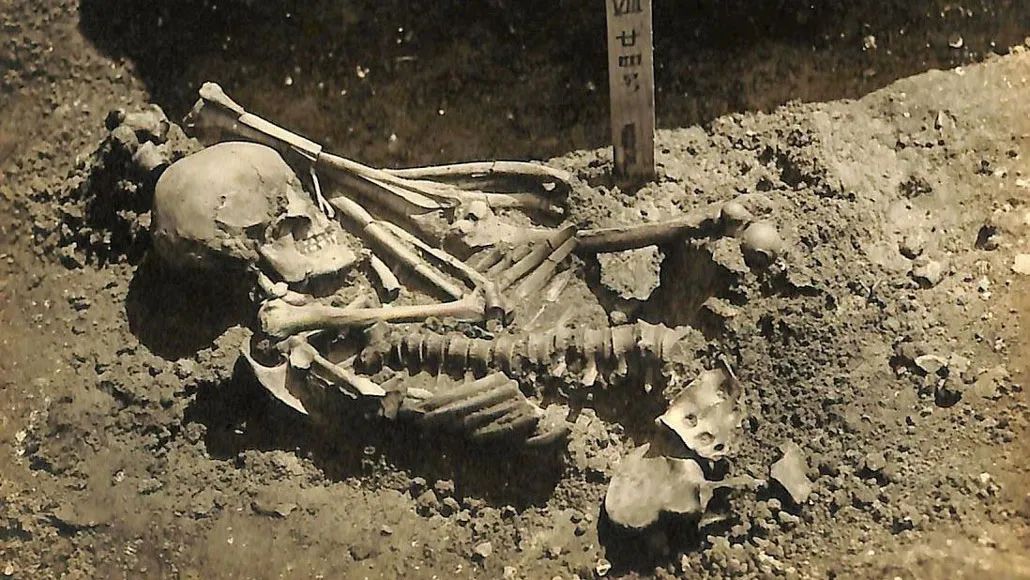
A man buried near Japan’s coast around 3,000 years ago, whose skeleton is shown where it was excavated, is the oldest known victim of a shark bite, a new study finds.
Laboratory of Physical Anthropology/Kyoto University
